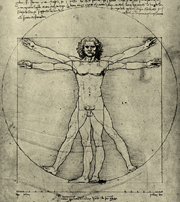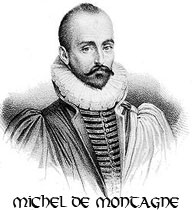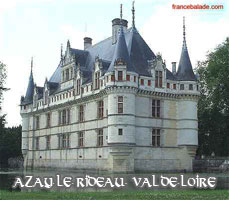|
|
|
|
|
When the man begins to think about himself and starts to take distance of the concept that everything is governed by a divine omnipresence controlled by the Church, the Renaissance begins. And a new way towards God. |
|
|
Was beginning the XVI century, and Konstantinos Lascaris, Greek scholar, felt that his life was arriving to the end. In his house in Sicily he remembered the first time he arrived in a ship, at the end of 1453, from Rhodes to the coasts of Sicily. Byzantium, the Great Byzantium, the magnificent city of the Mediterranean Sea, had fallen under the power of the Sultan Mehmet II, after 40 days of harassment. The Turks had captured Constantinople, had invaded the Cathedral of Saint Sophie and removed the images of their virgins. Now was established in the Eastern Roman Empire a new religion, a new official language, another costumes and another Lords. Lascari had to go away, and what better than Italy, where the Cardinal Basilios Bessarion, Greek either, was waiting for him, and offered him to teach Greek language to the basilian monks of Messina. Then he reminded when the Duke Ludovico Sforza entitled him as guardian of his daughter in Milano, and he could publish there, in 1467, the Greek language Grammatica, which was printed with the new Gutenberg's invention, and spread everywhere. His Grammatica could open to the eyes and the minds of those men of the end of the Medieval age the forgotten Greek tradition and culture: the ideas of the great philosophers, of the great artists of the ancient times. Later he witnessed how many other Greek scholars followed him, and disembarked in Italy more than 100 grammarians, humanists, writers, painters, sculptors, musicians, astronomers, architects, philosophers, scientists and theologians. All of them bringing the greatest wealthy of the humanity: the ancient Greeks' culture. They rediscovered Plato, Socrates, Aristotle, they made contact with the heights and the profundities of the Hellenistic thought, with the idea of the atom, with all the great philosophic humanist ideas. Lascari had contributed to sow the seed of the Renaissance of Europe, the end of an obscurantist age of limited perceptions. In 1501, he knew that his work was concluded and widespread , and he could rest in peace. |
|
When New Worlds are discovered beyond the Atlantic Ocean, when the heliocentric theory starts to be questioned; when the peace in Europe after the Hundred Years War allowed available time to reconsider a new vision of the world; when the Sultans of the Turkish Empire conquer Constantinople, throwing on the European coasts a new reading of the ancient knowledge, and the discovery of printing by movable metal types by Gutenberg increased the production and spread of this cultural richness everywhere; when the religious reformations start to undermine the huge power of the Catholic Church; when the calm of a world without conflicts begins to suggest a close-up of the aesthetic above the practical; then, everything changes. Slowly, but progressively, everything changes. The man, the society, the nations, all wake up from a straight and margined vision, although very well ordered, of the world. Politics, costumes, philosophy, music, painting, architecture, sculpture, literature, poetry, everything changes. The human being's spirit is transformed. A new middle class of merchants, bourgeois, becomes more important and influent in politics. To trade is not longer a sin, developing the banks and the financial businesses. The feudalism reaches to its end; social structures are reordered. Humanism commotions the bases of a hyper-religious cosmogony . The man starts to walk and step more safely, with determination and self-confidence in his achievements. After centuries of medieval obscurantism, flourishes the reborn to the ancient and wealthy traditional cultures of Greece and Rome. The Renaissance is not more than an expression of our today's vision about what happened in XV and XVI centuries. It means a whole transformation, not given in a shot, but gradually, coming from the coasts of Italy. It sailed on the Mediterranean sea, and it entered at slow march into all Europe. And was the end of the darkness. This is a reborn to a new vision of the Universe: from a limited and reduced world of knowledge, and only explained in a poor Latin, the eyes and minds of Europe are opened to another one bigger, with a new Continent, richer in culture and knowledge, expressed in cultivated Latin, in Greek, and translated to all regional languages; a world stopping of being theocentric to turn it anthropocentric. A Universe adopting the humanist philosophy. It's the beginning of the modern world. All our minds are, today, shaped and colored by that period.
|
 |
The Renaissance was an age of extraordinary gifted and brilliant individuals, probably not to be matched, in their versatility, by men in any other age. Open to the universal culture, they were at the same time artists, scientists, astronomers, mathematicians, philosophers...and succeeding in every matter . Leonard Da Vinci was a typical example of this class of men. The thought of that age can be summarized in his image of the Vitruvian Man, where the man is now the proportion of everything, the concept of equilibrium, beauty and perfection. The thought of that age, taking distance of the pressures of a society chiefly theocratic, is then influenced by the humanist ideas brought from Greece, and Erasmus of Rotterdam is the theologian who balances the position between the newborn Protestant Reformation and the Catholic Church. Humanist of independent spirit, he wants to have a thought free of all influences. Close friend of Martin Luther, it's possible to say that is him who opens the doors to the Reformation, although he denies participate in the struggle between both parties. Could be assigned to his influence, mainly, the mentality of the man of the Renaissance. |
 Vitruvian Man. |
 |
||
 |
The Renaissance comes over France in its latest period, beginning the XVI Century. In the quotidian life is developed the taste for the comfort, the pleasure, the luxury. Music, dance, gardens, illumination and romance are enjoyed by everybody. It's under this elegant atmosphere that was risen up the famous Val del Loire Castles. The art takes the Greek foundations: nudity stops to be a sin, mythological images are painted and the portrait acquires huge importance. The Architecture rediscovers pilasters, capitols, terraces, arcs of triumph; French shapes became more simple and balanced than the Italians. The science takes distance from the magic and predominates the idea of, as more scientific progress, more savior. Humanist philosophers like Michel de Montagne elasticize the culture and open their minds to any knowledge, without prejudices. In literature, appears a Rabelais, who was called the Cervantes of the French language. The monarchy relies more on rich bourgeoisies than on the old Feudal Lords .In 1539, throughout the Ordinance of Villiers-Coterêt, the King Francis the 1st promotes the French language as official. |
 |
|
- Who knows himself, knows also the others, because each man carries the whole form of the human condition. Michel de Montaigne. |
|
And will be in this environment where we find the first Briand recorded in our memory and in our registers>
|